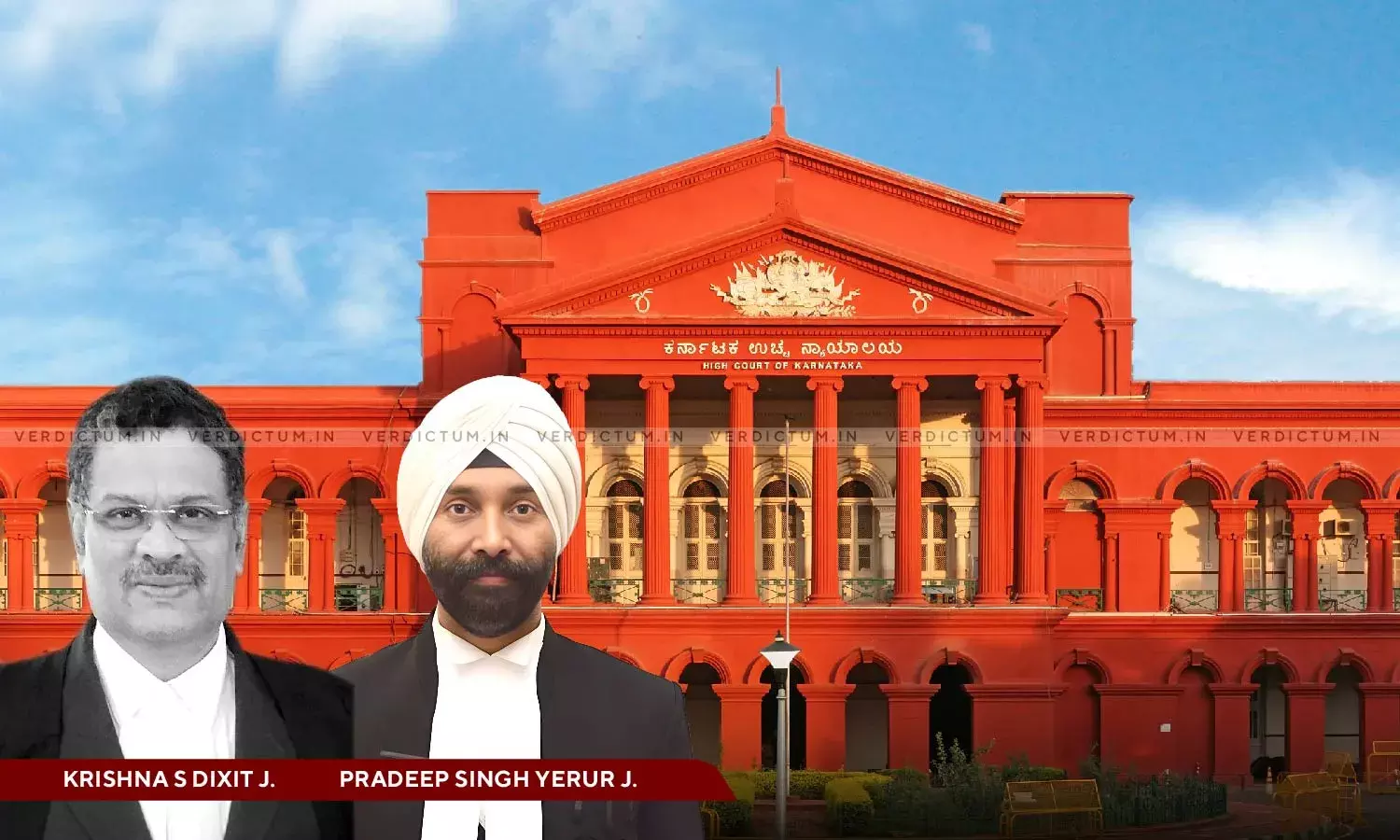2020 UAPA Case: Karnataka HC Refuses Bail To Bengaluru Riots Accused, Observes Bail Is Rule Norm Cannot Be Chanted Like Mantra

A Karnataka High Court Bench of Justice Krishna S Dixit and Justice Pradeep Singh Yerur has refused to apply the "bail is the rule and jail is an exception" dicta of the Supreme Court. In light of the same, the Court has refused to grant bail to an accused charged in the 2023 Bengaluru Riots. In that context, it was said that "the interest of an individual cannot march over the collective interest of the society".
The Court further stressed that "Norms of the kind cannot be chanted like mantra or slogans, in every bail petition out of the contextual circumstance. Etymology of a norm is ever the arbiter of its worth. The norms which govern behaviour of individuals ordinarily cannot transcend the social conditions that obtained when they were evolved. Added, their efficacy level and invocability potential do not remain constant; variable, they are. All this cannot be lost sight of by the courts. Otherwise, invoking such principles to the sole benefit of an accused detenue, involved in heinous offences, may result into a huge ‘law & order’ issue, and also cause a massive detriment to the societal interest".
Counsel Mohammed Tahir appeared for the appellant, while Counsel Prasanna Kumar P appeared for the respondent.
In this case, the Court was hearing an appeal challenging an order passed by the Special Court refusing him bail. The appellant was accused in the KG Halli Riots, where the miscreants had attacked the local police station and set it on fire.
The appellant had argued that the Court should consider the sanctity of basic human rights and the doctrine of innocence of the accused unless the contra is proved. Further, the appellant also referred to the famous dicta of Justice Krishna Iyer in Gudikanti Narasimhalu vs Public Prosecutor, where it was held that "bail is the rule and jail is an exception".
The High Court observed that this norm was a lenient one of bail jurisprudence and had evolved years ago in a case that involved offences punishable under the provisions of Macaulay’s Code i.e., IPC, 1860. In furtherance, it said that times are now different, and that "Liberty of an individual as constitutionally guaranteed is important; however, what is even more important is, the safety of civil society."
In similar context, the Court further observed that "Almost all the norms in a legal system, be it civil or criminal, are relative; they are bound to the Society’s Calendar. With ceaseless run of Time, these norms undergo change in their texture & colour for retaining their relevance as a living law of the people".
Pertinently, the Court noted that the NIA had placed on record abundant material that demonstrated that the appellant was an active participant in the incident.
Subsequently, the Court held that the cause of justice would be served more by continuing the confinement of the appellant, than setting him free. Stressing that the accused must be granted a speedy trial, the Court dismissed the appeal on finding it devoid of merits.
Cause Title: XXX vs National Investigating Agency

